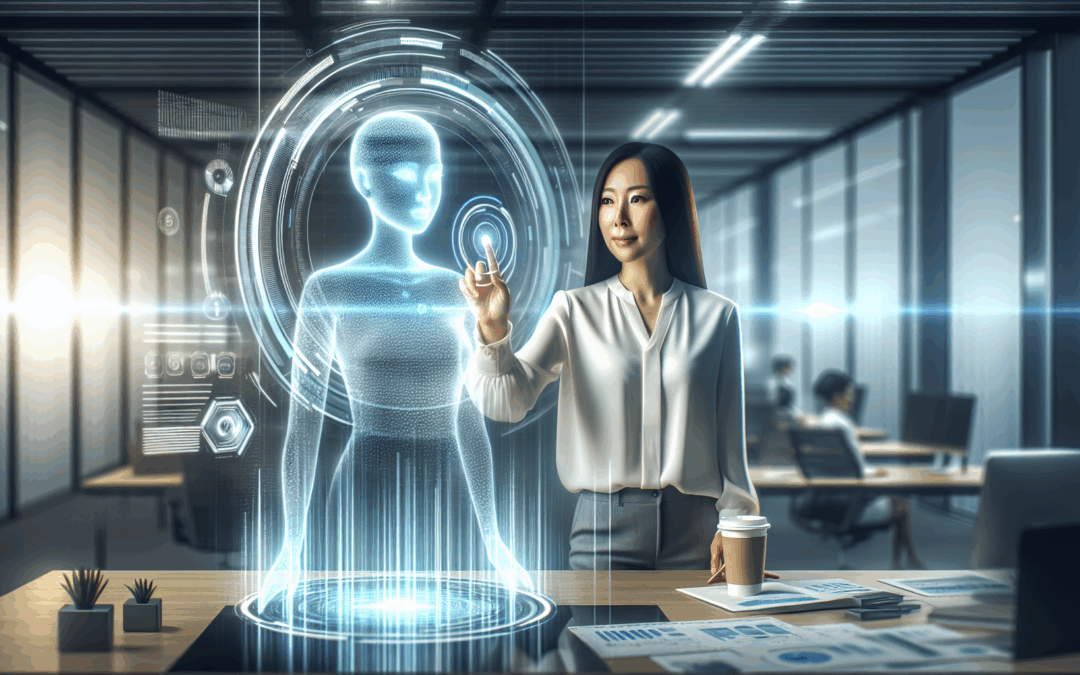The Rise of AI in the Modern Workplace
Artificial Intelligence (AI) is transforming the modern workplace at an unprecedented pace. From automating routine tasks to enhancing creative problem-solving, AI is reshaping how work gets done across industries. As companies look to optimize efficiency and productivity, the integration of AI into the office environment has become not just a competitive advantage but a necessity.
Understanding AI’s Role in the Office
Traditionally, offices have relied heavily on manual processes and human judgment in daily operations. With AI, many of these tasks are now automated or augmented by intelligent systems. AI algorithms can handle scheduling, data analysis, customer service, and even complex decision-making processes. This evolution supports employees by reducing mundane workloads, allowing them to focus on higher-value activities.

One of the key benefits of AI in the workplace is its ability to analyze vast amounts of data rapidly. This capability enables smarter business insights and faster responses to market changes. Additionally, AI-driven tools assist with document management, communication, and project coordination, making office workflows more seamless and efficient.
Boosting AI Productivity Through Smart Integration
AI productivity gains in the office stem from both automation and augmentation. Automation refers to AI taking over repetitive, time-consuming tasks such as data entry or email filtering. Augmentation involves AI supporting human workers with enhanced capabilities—for example, providing real-time language translations or predictive analytics during meetings.
To maximize AI productivity, organizations must develop tailored AI prompts and workflows that fit their specific needs. AI prompts, which are carefully crafted inputs or commands, guide AI models to perform desired tasks accurately. Skilled creation and refinement of these prompts enhance AI’s usefulness, reducing errors and increasing output quality.
Moreover, integrating AI appropriately means investing in employee AI training. Staff need to understand how to interact with AI tools effectively, interpret AI-generated insights, and troubleshoot issues. AI training empowers workers to harness AI’s full potential, fostering a culture of innovation and continuous improvement.
AI Training: Building Employee Confidence and Competence
A significant part of successful AI implementation in the workplace is comprehensive AI training programs. These programs focus not only on operational use but also on ethical considerations and data privacy. Educating employees on these facets ensures responsible AI adoption and maintains trust.
Effective AI training blends theoretical knowledge with hands-on practice. Employees become familiar with AI tools—whether chatbots, virtual assistants, or analytics platforms—through guided sessions that simulate real workplace scenarios. This approach helps overcome resistance to new technology by highlighting tangible benefits and reducing anxiety around change.
Furthermore, ongoing AI training keeps employees updated as AI evolves. Given the rapid advancements in AI capabilities, continuous learning becomes essential to remain competitive in the workplace. Companies that prioritize AI literacy position themselves as forward-thinking and adaptable.
Transforming Work Culture with AI
The infusion of AI in the office goes beyond tools and processes; it influences workplace culture profoundly. By relieving employees of repetitive tasks, AI allows teams to invest more time in creative thinking, strategic planning, and collaboration. This shift nurtures a more engaged and satisfied workforce.
In addition, AI-enabled offices often experience better decision-making. AI models support leaders by providing data-driven insights that minimize biases and highlight trends. This transparency fosters a culture of accountability and evidence-based management.
One notable perspective comes from Andrew Ng, a leading AI expert, who said: “AI is the new electricity.” This metaphor underlines AI’s pervasive potential to energize and transform various sectors, including the office environment.
Challenges and Ethical Considerations
While AI brings numerous advantages to the workplace, it also presents challenges. One major concern is job displacement due to automation. Organizations must balance efficiency gains with thoughtful workforce planning and reskilling initiatives.
Privacy is another critical issue. AI systems handle sensitive workplace data, necessitating robust security measures and compliance with data protection regulations. Transparency in AI operations and decision-making processes helps build employee trust.
Ethical AI use also requires designing algorithms that avoid perpetuating bias or discrimination. Achieving fairness and inclusivity in AI-driven workplace tools is fundamental to maintaining equity and morale within teams.
The Future of AI at Work
Looking forward, AI’s role in the workplace will deepen, becoming more personalized and intuitive. Advances in natural language processing and machine learning promise even more sophisticated AI prompts and interactions. Offices of the future will likely feature AI collaborators seamlessly embedded in daily workflows.
Hybrid work models that combine remote and in-office environments stand to benefit greatly from AI tools that enhance virtual collaboration and communication. The blend of human creativity and AI efficiency will drive innovation and business growth.
Ultimately, embracing AI at work means recognizing it as a partner rather than a replacement. By investing in AI training, ethical practices, and human-centered design, companies can unlock AI’s full potential to improve productivity, employee experience, and organizational success.
In conclusion, AI is redefining the workplace landscape. From automating routine tasks to enabling smarter decisions, its integration into office environments offers transformative possibilities. The key to harnessing these benefits lies in strategic implementation, thoughtful AI prompts, comprehensive AI training, and a commitment to ethical use. As AI continues to evolve, it will undoubtedly become a central pillar in the future of work.
Get started today with Responsible use of AI license training.

